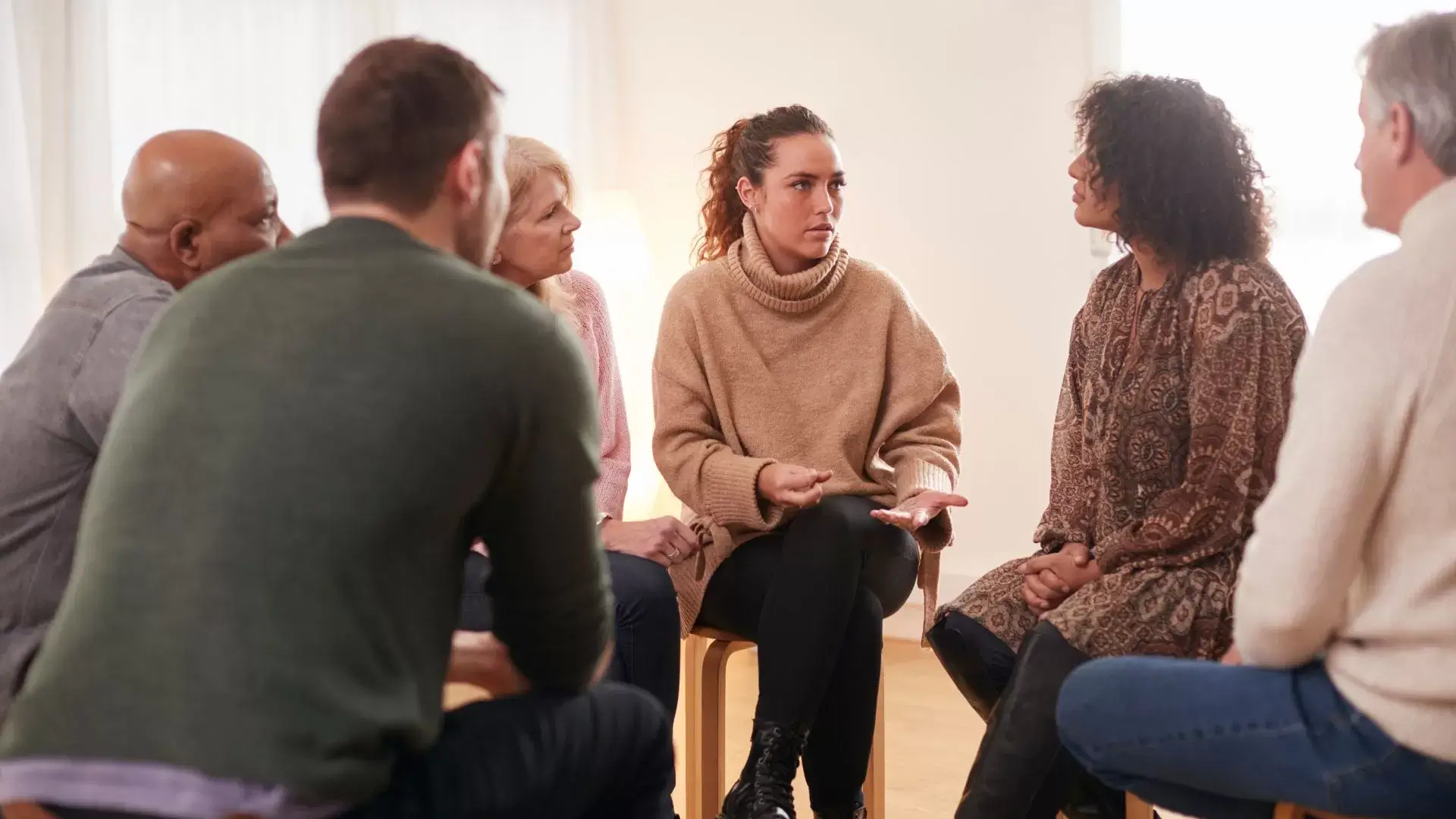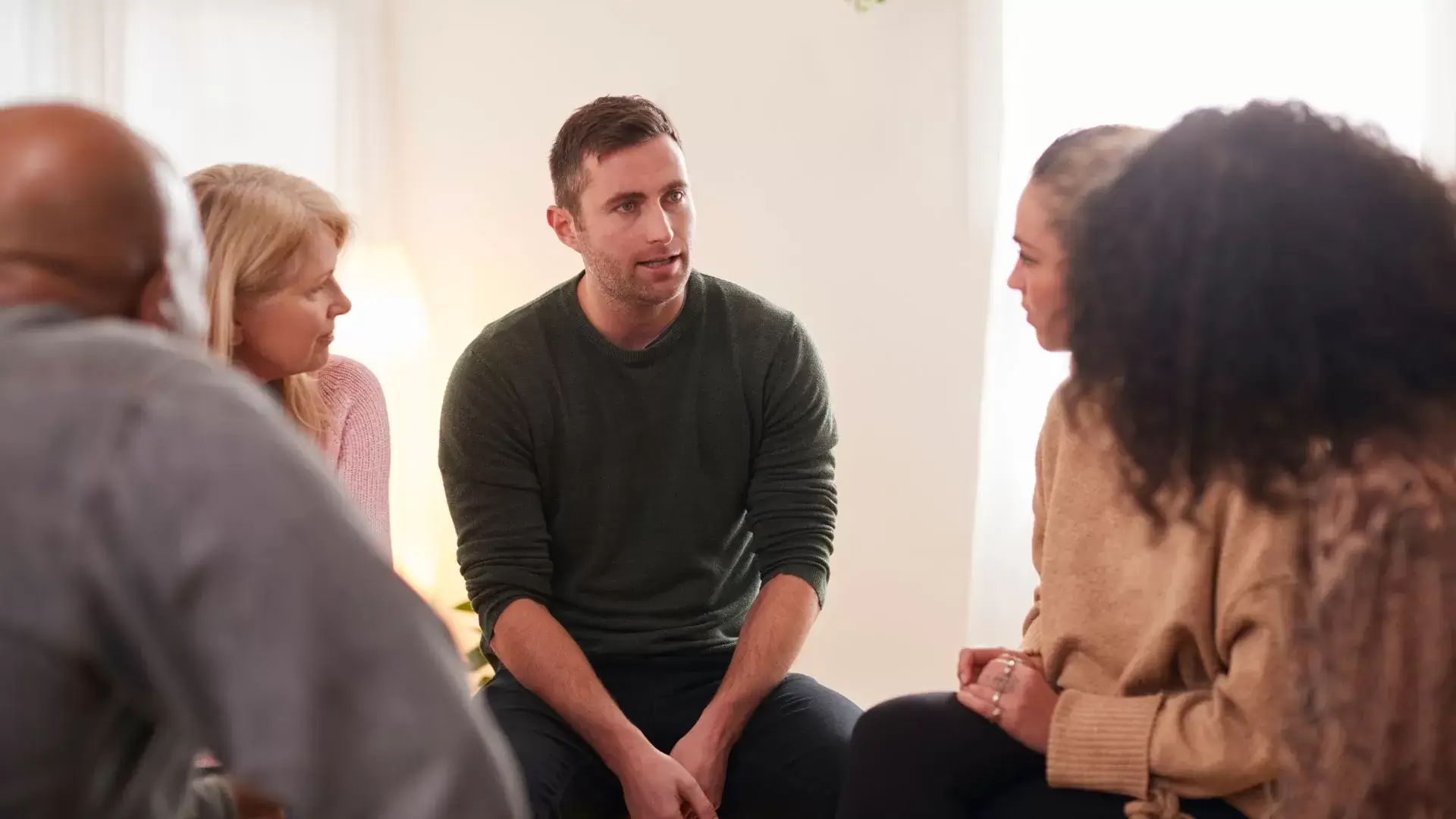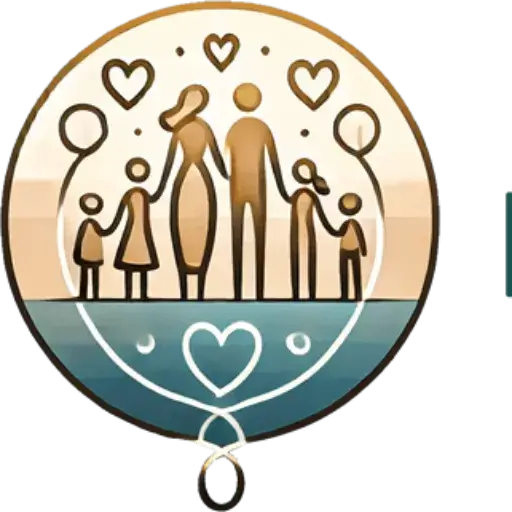Family Counselling Therapy for Depression
Family Counselling Therapy can be a powerful resource for us as we navigate the challenges of depression together. It provides a supportive environment where we can openly discuss our emotions and experiences, reinforcing our bonds. Our family therapist guides us through understanding the impact of depression on our entire unit, helping us develop better communication skills and coping strategies. By focusing on collective healing, we empower each other and strengthen our resilience. If we explore further, we can discover various approaches that enhance our family’s journey towards wellness and connection.

About Family Counselling Therapy
Family counselling therapy offers us a supportive space where we can explore our shared experiences and emotions, helping to strengthen our connections while addressing the challenges of depression together. Through family counselling services, we engage in family therapy sessions that encourage open dialogue and emotional support in families. It’s in this environment that we can tackle the complexities of depression in families, allowing us to understand how our family dynamics contribute to our collective well-being.
By participating in therapeutic interventions, we cultivate essential skills for conflict resolution in families, fostering healthier communication and deeper understanding. Family communication therapy helps us express our feelings and thoughts more effectively, breaking down barriers that may have formed over time. This collaborative process allows us to rebuild and nurture our family relationships, focusing on family mental health as a shared priority.
Together, we can identify patterns that may hinder our growth and create strategies for family relationship building. Ultimately, family counselling therapy empowers us to face challenges head-on, reinforcing our bonds while promoting a more resilient and supportive family unit.
Understanding Depression in a Family Context
Recognizing how depression affects not just individuals but the entire family unit is essential for fostering a supportive environment where we can all heal together. When one of us struggles with mental health issues, such as depression or anxiety, it often creates ripples that impact everyone in the family. That’s why family therapy can be an invaluable resource, helping us to navigate these challenges together.
Engaging in trauma-informed therapy allows us to understand each other’s experiences more deeply, promoting emotional support within our family. We must also consider parent-child therapy, which can strengthen bonds and improve communication skills, helping us express our feelings constructively.
Moreover, grief counselling can address feelings of loss that may accompany mental health struggles, while behavioral therapy can equip us with strategies to manage our responses to stress and conflict. By improving our family conflict management techniques, we can create a healthier atmosphere that encourages open dialogue and understanding.
Ultimately, it’s about working collaboratively, supporting one another, and recognizing that our collective well-being relies on the mental health of each family member. Together, we can foster resilience and strengthen our family ties.

The Role of a Family Therapist in Depression Treatment
A skilled family therapist plays an important role in guiding us through the complexities of depression, helping each member understand their unique experiences while fostering a supportive environment for healing. These mental health professionals utilize various approaches, including cognitive-behavioral therapy, to address the root causes of our struggles and improve family emotional well-being.
In therapy for family issues, the family therapist encourages open communication, allowing us to express our feelings and concerns without judgment. This collaborative process helps us build stronger relationships, as we learn to support one another through difficult times. The therapist also provides vital support for parents, equipping them with tools to manage their own emotional challenges while nurturing their children.
Family support programs and crisis intervention therapy may be integrated into our sessions to guarantee everyone’s needs are met. By involving all family members, we create a safe space for emotional therapy, which can greatly alleviate the burden of depression. Ultimately, the family therapist’s role is to guide us toward understanding, acceptance, and healing, making sure that we emerge stronger and more connected than ever.
Marriage and Family Therapy for Depression
Exploring marriage and family therapy can deepen our understanding of how depression affects not just individuals but the dynamics of our relationships. When we engage in marriage counselling, we open a dialogue that emphasizes the importance of family therapy techniques in addressing these challenges. By working with an emotional resilience specialist, we can learn to navigate the complexities of our relationship dynamics and foster a supportive environment.
Therapeutic counselling offers us valuable insights into coping mechanisms that can build resilience against stress. This approach is especially critical for families with adolescents facing mental health challenges. Family-focused therapy helps us identify patterns and behaviors that contribute to depression, enabling us to tackle issues collaboratively.
In our sessions, we can cultivate mental health awareness, understanding how our interactions impact each other’s well-being. Together, we can develop strategies that promote healing and connection, reinforcing the idea that we’re not alone in this journey. By prioritizing our emotional health, we can strengthen our relationships and create a foundation for lasting happiness. Ultimately, marriage and family therapy empowers us to face depression as a united front, enhancing our collective resilience and fostering a healthier family dynamic.
Cognitive-Behavioral Therapy (CBT) in Family Counseling
Cognitive-Behavioral Therapy (CBT) offers us a practical framework to understand and modify the thought patterns that contribute to depression within our family dynamics. By engaging in the family therapy process, we can collaboratively identify how negative thoughts affect our interactions and overall family wellness. This approach encourages open communication, allowing us to challenge unhelpful beliefs and develop healthier perspectives together.
As we navigate our family mental health care journey, a relationship counsellor can guide us in utilizing effective stress management techniques. We can also explore parenting strategies that foster resilience in our children, especially with the support of a child and adolescent counsellor. This is particularly important when addressing the impacts of trauma therapy, as it helps us understand how past experiences shape our current behaviors.
Integrating CBT into couples therapy can enhance our understanding of one another, enabling us to build stronger connections. By focusing on cognitive-behavioral techniques, we can create a supportive environment where every family member feels valued and heard. Together, we can work towards a healthier family dynamic, ultimately reducing the effects of depression and promoting lasting family wellness.
Family Systems Therapy for Depression
While CBT helps us address individual thought patterns, Family Systems Therapy focuses on understanding how our relationships and interactions within the family unit influence each member’s experience of depression. This approach allows us to view clinical depression not just as an individual issue, but as something that can be affected by family dynamics.
In our sessions, we explore how emotional numbness and communication patterns impact our mental wellness. By engaging in holistic family therapy, we strengthen our connections and promote healthier interactions. Parental counselling plays a significant role here, as we learn how parents can support their children through child therapy, fostering an environment conducive to healing.
Couples and family therapy encourages us to work collaboratively, ensuring that everyone feels heard and valued. This collective effort not only aids in the recovery process but also serves as a form of relapse prevention. By understanding the underlying family dynamics contributing to depression, we can develop strategies to create a more supportive and empathetic home environment. Ultimately, Family Systems Therapy empowers us to break the cycle of depression together, fostering resilience and hope within our family unit.

Parent-Child Therapy for Families Affected by Depression
When families face the challenges of depression, parent-child therapy can provide an essential space for both parents and children to express their feelings, fostering understanding and healing within the family unit. This approach often incorporates child counselling therapy, which helps children articulate their emotions and experiences related to the depressive disorder affecting their family.
By engaging in family-centered counselling, we can work together to develop effective coping strategies that benefit everyone involved. Parents gain invaluable parental guidance, learning how to support their children while also addressing their own low mood. Collaborating with a certified family therapist or cognitive-behavioral therapist, we can create a safe environment where open communication flourishes.
As we navigate these challenging times, our focus remains on family healing. We’ll explore the impact of depression on each family member, promoting empathy and connection. Through mental health counseling, we can break down barriers, ensuring that every voice is heard and valued. Ultimately, our collective journey through parent-child therapy can strengthen our family bonds, empowering us to face depressive challenges together, fostering resilience and emotional well-being.
Couples Therapy: Navigating Depression Together
Couples facing the challenges of depression often find strength in therapy, as it provides a shared space to explore their feelings and support each other through difficult times. In couples therapy, we can work together with a marriage and family therapist who understands the complexities of mental illness. This collaborative approach helps us address our relationship struggles while building essential communication skills.
Through psychotherapy, we learn to articulate our emotions and understand each other’s experiences with depression. Support groups can also complement our journey, offering a network of shared experiences that can lessen feelings of isolation. As we navigate this path, integrative family therapy can provide us with additional strategies to strengthen our bond and improve our overall well-being.
It’s vital to recognize that we’re not alone in this journey. With family guidance services, we can develop healthier coping mechanisms and foster resilience within our relationship. Together, we can create a safe space to confront depression, allowing us to emerge stronger and more connected. Embracing couples therapy means committing to understanding each other deeply, ensuring we both feel seen and valued amidst the challenges.
Therapeutic Interventions for Family Members with Depression
Therapeutic interventions for family members facing depression can greatly enhance our collective understanding and support, fostering a nurturing environment where healing can take root. When we consider approaches like child counselling therapy, we recognize the importance of addressing the unique needs of younger family members affected by a mood disorder. Family health counselling becomes essential, as it facilitates open communication and understanding among all members.
In couples and family therapy, we can work together to develop a thorough treatment plan that addresses the complexities of depression. Techniques such as cognitive behavioral therapy not only help individuals reframe negative thoughts but also promote healthier interactions within the family unit.
Medication management may also play a significant role in recovery, ensuring that those affected receive the necessary support while minimizing side effects. By prioritizing family support, we create a safe space for each member to express their feelings and concerns, reinforcing the idea that we’re in this together. Ultimately, these interventions empower us to navigate the challenges of depression collectively, fostering resilience and hope as we work toward recovery as a family.
Emotional Support and Resilience Building in Families
Emotional support is essential for families steering through the challenges of depression, as it fosters connections that can strengthen resilience and promote healing together. When we engage in child counselling therapy or family behavioral therapy, we create a safe space for expressing feelings. This emotional support helps us face the difficulties of major depressive disorder collectively.
In couples and family therapy, we learn to communicate openly, building trust and understanding. By sharing our experiences, we not only alleviate stress but also enhance our social support systems. We discover that resilience building isn’t just an individual journey; it’s a family endeavor.
Psychotherapy can guide us in developing coping strategies that are beneficial for everyone involved, including parenting coaching that addresses the unique challenges we face. Together, we can cultivate an environment where each family member feels valued and heard. This collaborative approach empowers us to confront the emotional hurdles posed by depression, transforming our family into a pillar of strength.
In this process, we realize that fostering emotional support is not just about alleviating pain; it’s about nurturing growth and resilience that will last long after the therapy sessions end.
Managing Anxiety and Depression in Family Settings
Steering through anxiety and depression within a family requires us to recognize the interconnectedness of our experiences, allowing us to support one another through these challenging emotions. We often face anxiety and depressive disorders together, and it’s essential to foster an environment where open dialogue is encouraged. By seeking help from a licensed counsellor, we can explore child counselling therapy options for our younger family members, ensuring they feel heard and understood.
Engaging in couples and family therapy can help us strengthen our bonds while addressing these mental health challenges collaboratively. Incorporating holistic therapy approaches, such as mindfulness and self-care practices, can further enhance our collective resilience. Group therapy can also provide a supportive space for us to share our experiences, reminding us that we’re not alone in this journey.
Utilizing mental health resources available in our community can empower us to take proactive steps in managing anxiety and depression. Through psychotherapy and open communication, we can learn to navigate these difficulties together, fostering a nurturing environment that promotes healing and understanding within our family. Together, we can transform our struggles into opportunities for growth and connection.
Family Counseling for Long-Term Depression Management
As we continue to navigate the complexities of mental health together, family counseling can play a pivotal role in managing long-term depression, providing us with the tools and support needed to foster resilience and understanding within our family unit. Engaging with a psychotherapist helps us address not just individual struggles but also the dynamics that contribute to our collective experience of depression.
In family counseling, we can explore sibling therapy and couples and family therapy, ensuring everyone feels heard. This collaborative approach allows us to discuss the impact of chronic pain and cognitive decline on our loved ones, leading to more informed and compassionate responses. By focusing on lifestyle changes and incorporating mindfulness practices, we can create a supportive environment that encourages healing and growth.
Regular psychiatric evaluations can also guide us in understanding the nuances of each family member’s mental health journey. Together, we can develop effective depression management strategies that empower us to face challenges as a united front. Ultimately, family counseling not only helps in alleviating symptoms but also strengthens our bond, fostering a sense of hope and connection as we navigate this journey together.
Group Therapy for Families Dealing with Depression
Steering through the challenges of depression together, group therapy offers families a unique space to share experiences, gain insights, and support one another in healing. In these sessions, we can discuss our struggles with depressive disorders, including social withdrawal and the impact of trauma on our family dynamics. By participating in talk therapy as a group, we can break the stigma surrounding mental health, fostering an environment where everyone feels safe to express their feelings.
Through child counseling therapy for younger family members, we can guarantee that everyone’s voice is heard, promoting understanding and empathy. This collaborative approach allows us to learn from one another’s experiences, creating a strong support network. We might also explore how nutrition plays a role in our mental well-being, recognizing that holistic care is essential.
As we engage in couples and family therapy within this group context, we can strengthen our bonds, encouraging open dialogue and shared healing. Ultimately, group therapy empowers us to navigate the complexities of depression together, fostering resilience and hope for a brighter future.
Integrating Stress Management into Family Counseling
Integrating stress management techniques into our family counseling can greatly enhance our ability to cope with the emotional challenges that arise from depression. By focusing on stress management, we can address not just the symptoms of depressive disorders but also the underlying stressors that contribute to persistent depressive disorder within our families.
In couples and family therapy, we often explore relaxation techniques that help us unwind and reconnect. Simple practices, like deep breathing exercises or mindfulness meditation, can considerably improve our neurochemical balance, fostering a more positive environment. Incorporating regular exercise into our routines not only boosts our mood but also helps combat concentration problems that frequently accompany depression.
Additionally, we should prioritize sleep hygiene, ensuring everyone gets restorative rest. This holistic approach to stress management not only supports individual family members but strengthens our relationships as a whole. By collaborating on these strategies, we cultivate a resilient family unit, better equipped to navigate the challenges of depression together. Through psychotherapy, we can deepen our understanding of how stress impacts our lives and learn to implement these essential techniques effectively.

Contact Our Family Counselling Therapy Center for Depression Support
When you’re feeling overwhelmed by depression, reaching out to our Family Counselling Therapy Center can be an vital step toward healing and support. We recognize that living with a depressive disorder can bring feelings of sadness, hopelessness, and fatigue, affecting not just individuals but families as a whole. By engaging in couples and family therapy, we can work together to address these challenges.
At our Family Counselling Therapy Center, our experienced therapists employ a range of approaches, including Cognitive Behavioral Therapy (CBT) and psychotherapy, to support families in managing the complex emotions associated with depression. We understand that each family member’s journey is unique, and our collaborative method ensures that every perspective is valued. Whether you’re dealing with a recent diagnosis or exploring treatment options like antidepressants, we’re here to offer the guidance and support you need.
Together, we’ll create a safe and open environment that encourages communication and strengthens the bonds between family members. Remember, you don’t have to navigate this journey alone. By reaching out to us, you’re making a crucial step towards healing—not just for yourself, but for your entire family. Let’s join forces to overcome the challenges of depression and work towards a brighter, healthier future for everyone involved.

Frequently Asked Questions
How Can I Find a Qualified Family Therapist for Depression?
Finding a qualified therapist can feel overwhelming, but we can take it step by step. First, let’s research local therapists and read their reviews. We should consider asking for recommendations from friends or healthcare providers, too. It’s important to look for someone with experience in our specific concerns. Once we have a few options, we can schedule initial consultations to see who we connect with best. We deserve support that truly understands us.
What Is the Cost of Family Counseling Therapy Sessions?
When we look into the cost of family counseling therapy sessions, it can vary widely based on location, therapist experience, and session length. Typically, we might find it ranges from $200 to $300 per session. It’s important for us to take into account our budget while also prioritizing quality care. Many therapists offer sliding scale fees, so we should definitely ask about options that can make therapy more accessible for everyone involved.
How Long Does Family Counseling Therapy Typically Last?
When it comes to therapy, we often wonder how long sessions might last. Typically, they can range from a few weeks to several months, depending on our unique needs and goals. It’s crucial to remember that everyone’s journey is different, and we should feel comfortable discussing our progress with our therapist. By collaborating closely, we can guarantee that the duration aligns with our growth and understanding, creating a supportive environment for healing.
Can Family Counseling Therapy Be Conducted Online?
Absolutely, we can conduct family counseling therapy online! It’s become increasingly accessible and effective, allowing us to connect from the comfort of our own homes. We can utilize video calls, chat, and other digital tools to facilitate meaningful conversations. This flexibility helps us maintain our sessions even when life gets hectic. Together, we can explore our thoughts and feelings in a safe space, making progress no matter where we are.
What Should We Expect During Our First Family Therapy Session?
During our first family therapy session, we can expect a warm and welcoming environment. The therapist will likely introduce themselves, explain the process, and encourage us to share our thoughts and feelings. It’s a chance for us to express our concerns and begin building trust. We’ll collaboratively set goals for our time together, and the therapist will help guide our discussions, ensuring everyone feels heard and valued in the process.

